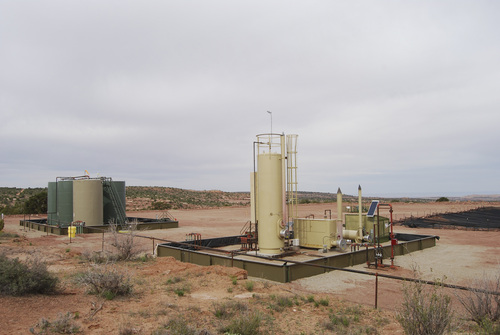This is an archived article that was published on sltrib.com in 2014, and information in the article may be outdated. It is provided only for personal research purposes and may not be reprinted.
It makes no difference whether petroleum is destined to fire our industry, power our cars and heat our homes for the next 500 years, or become the next generation's what-were-they-thinking relic. Oil wells are still dirty and need to be aggressively inspected by the relevant government agencies.
Which is why it was particularly bad news to learn recently that most of the oil wells and drilling sites operating on federal land in Utah have not been inspected.
Worse, two-thirds of the wells designated as high-risk by the Bureau of Land Management — so described because their location makes them most likely to damage sensitive lands or public parks — are also operating without so much as a cursory glance by the agency's inspectors.
The news comes from data obtained by the Associated Press and reported in last Sunday's Salt Lake Tribune.
As is often the case when any government operation falls short, the explanation has a dollar sign in front of it.
Congress has not authorized enough money for the BLM, Forest Service or Bureau of Indian Affairs to hire, train and, most important, retain inspectors with the skills necessary to keep an eye on the profit-maximizing businesses that are extracting finite and irreplaceable resources from public lands. And it has not given the agencies the power to raise drilling fees enough to cover that need.
For all the moaning heard from Utah's ruling Republicans and others, all that stuff about how the nasty ol' feds are choking off the flow of needed oil from federal lands, the fact is that the BLM, particularly, is approving leases and permits faster than it can keep up with necessary inspections.
Billets for oil field inspectors in federal agencies are often vacant because of the low pay, in the $35,000-a-year ballpark. And those who take the jobs, do the training and accumulate the experience are then worth much more than that to the oil companies, who hire away the experts who were trained on the public dime.
Such lack of attentiveness by federal agencies might be another argument for increased state and local authority over such matters. And it would be a good argument, if there was a hint of a reason to believe that Utah and its constituent counties would have any more interest in regulation and inspection than the feds do.
But, as all our state and local officials seem to be interested in is drill, baby, drill, that's an argument that holds no water. Even any very dirty, polluted water.
Congress must insist on serious improvement in this matter. And it must pay for it.



